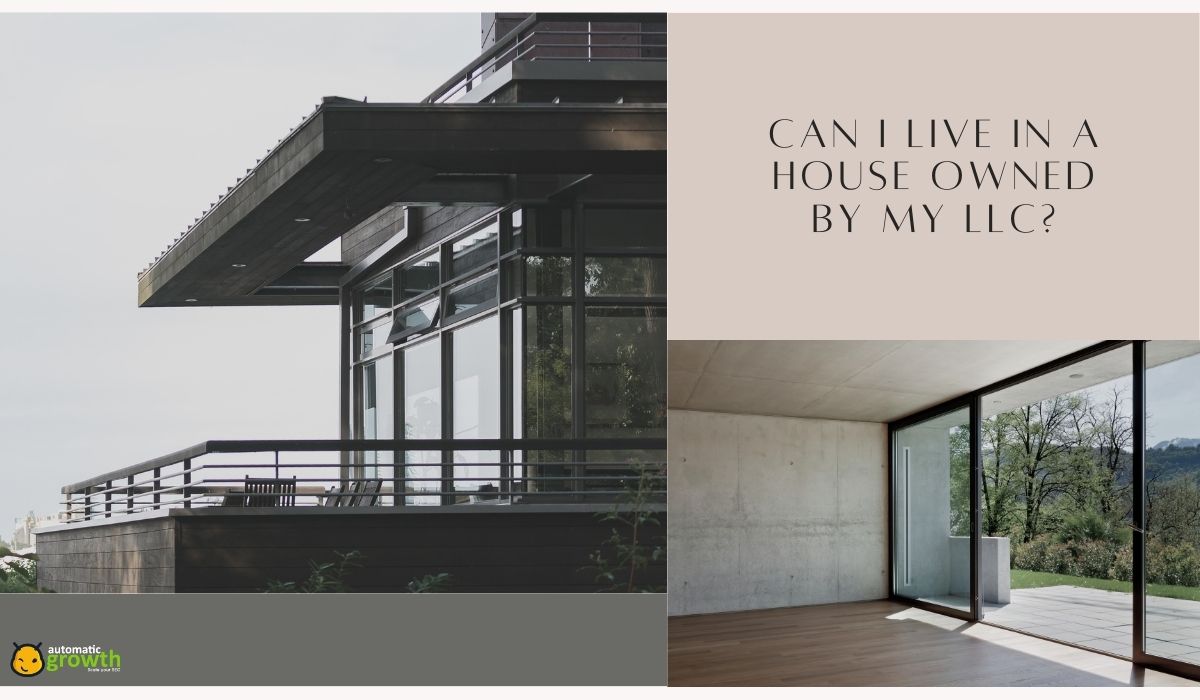Can I live in a house owned by my LLC? This question is not just a matter of personal preference but involves navigating a complex web of legal, financial, and practical considerations. Our article aims to demystify these aspects, providing clarity and guidance for anyone considering this unique living arrangement.
From understanding the basics of an LLC to delving into zoning laws, tax implications, and insurance requirements, we've covered every angle to help you make an informed decision. Whether you're an entrepreneur, an investor, or simply curious about this topic, our comprehensive guide will provide the answers you need.
What is an LLC?
An LLC, or Limited Liability Company, is a flexible form of business structure that combines elements of both a corporation and a partnership or sole proprietorship. Its primary purpose is to provide its owners, known as members, with limited liability. This means that, in most cases,the personal assets of the members are protected from business debts and liabilities. LLCs are popular among business owners for their flexibility in taxation, management, and organization.
Types and Characteristics
LLCs can vary significantly depending on how they are structured. The two main types are:
-
Single-Member LLCs: Owned by one individual, single-member LLCs are used by solo entrepreneurs. They offer the simplicity of a sole proprietorship with the liability protection of a corporation.
-
Multi-Member LLCs: Owned by two or more members. They can be managed by members (member-managed) or by appointed managers (manager-managed). This structure is akin to a partnership but with the added benefit of limited liability.
Each type of LLC can choose to be taxed as a sole proprietorship, partnership, or corporation, providing significant flexibility in financial planning.
Advantages of Owning Property Through an LLC
So, can I live in a house owned by my LLC? The answer is yes! There are many advantages of owning property through an LLC. However, while it's legally permissible to live in a house owned by your LLC, it involves navigating a range of legal, financial, and practical issues. It's recommended to consult with legal and financial professionals to fully understand and address these considerations.
-
Liability Protection: One of the foremost advantages of holding property through an LLC is liability protection. If the property incurs any liability, such as from a lawsuit or debt, the members' personal assets are generally shielded from being used to satisfy business liabilities.
-
Tax Benefits: LLCs offer several tax advantages. Depending on the chosen tax structure, an LLC can avoid double taxation (unlike corporations). Profit and loss can pass through to the members' personal tax returns, potentially leading to tax savings.
-
Privacy and Anonymity: Owning property through an LLC can provide a degree of privacy and anonymity. The property is titled in the name of the LLC, not the individual members, which can be advantageous for various reasons, including personal privacy or strategic business purposes.
Legal Considerations
Zoning Laws and Residential Use
When an LLC owns a residential property, it's essential to adhere to local zoning laws. These laws dictate how properties in different zones can be used. For instance, a property in a residential zone might not be used for certain types of business activities. Before purchasing a property through an LLC, check the local zoning ordinances to ensure that living in the house aligns with these laws.
Compliance with State Laws and LLC Regulations
Each state has its own set of rules and regulations governing LLCs. These can include business registration requirements, annual reporting, and compliance with state-specific business laws. It’s crucial for the LLC owning the property to remain in good standing by complying with these regulations to avoid legal complications.
Potential Legal Risks and How to Mitigate Them
Owning residential property through an LLC can present legal risks, such as disputes with tenants or issues related to property maintenance. To mitigate these risks, it’s advisable to:
-
Seek legal counsel to ensure all operations comply with state laws.
-
Maintain a clear distinction between personal and business finances to protect against piercing the corporate veil.
-
Ensure the property is up to code and meets all safety standards.
Financial Implications
Financing and Mortgage Considerations for LLC-Owned Properties
Financing a property purchase through an LLC can be more challenging than personal financing. Lenders may perceive a higher risk and might require a larger down payment or offer higher interest rates. Additionally, loan options may be limited, as some lenders do not provide mortgages to LLCs.
Tax Implications of Living in an LLC-Owned Property
The tax implications for an LLC owning residential property can be complex. If the property is used as a personal residence by one of the members, there could be implications for mortgage interest deduction and property tax deductions. It’s important to consult a tax professional to understand the specific impacts on your tax situation.
Insurance Requirements and Options
Insurance for an LLC-owned property typically differs from personal homeowner's insurance. The LLC should obtain a landlord insurance policy that covers the property itself, potential liability, and loss of rental income. It’s also advisable for the resident to have renter's insurance.
Practical Considerations
Lease Agreements between the LLC and the Resident
If a member of the LLC is living in the property, it’s recommended to have a formal lease agreement in place. This agreement should outline the terms of the lease, rent payments, and other responsibilities. This helps in maintaining clear boundaries between personal and business matters.
Maintaining Clear Financial Records
It’s crucial for the LLC to keep meticulous financial records, including expenses, rental income (if applicable), and maintenance costs. This not only helps in tax filing and financial management but also supports the legitimacy of the LLC in legal matters.
Long-Term Implications for Estate Planning and Asset Management
Owning property through an LLC can have implications for estate planning and asset management. The property is considered a business asset, which can affect inheritance processes. Proper estate planning, possibly involving trusts or other mechanisms, can ensure that the property is managed according to the owner's wishes after their passing.
In conclusion, while owning a house through an LLC offers certain advantages, it also requires careful consideration of legal, financial, and practical aspects. Ensuring compliance with laws, understanding financial implications, and managing the property efficiently is crucial for the successful integration of personal residency within a business framework.
Explore How an LLC Can Benefit Your Real Estate Investments
Ready to maximize your real estate investment returns? Dive into the world of LLCs and discover the numerous tax advantages they can offer. Whether you're a seasoned investor or new to the game, understanding the tax benefits of an LLC can significantly impact your financial strategy.
From frompass-through taxation to potential deductions, an LLC could be the key to optimizing your property investments. Don't miss out on LLC tax benefits!
















